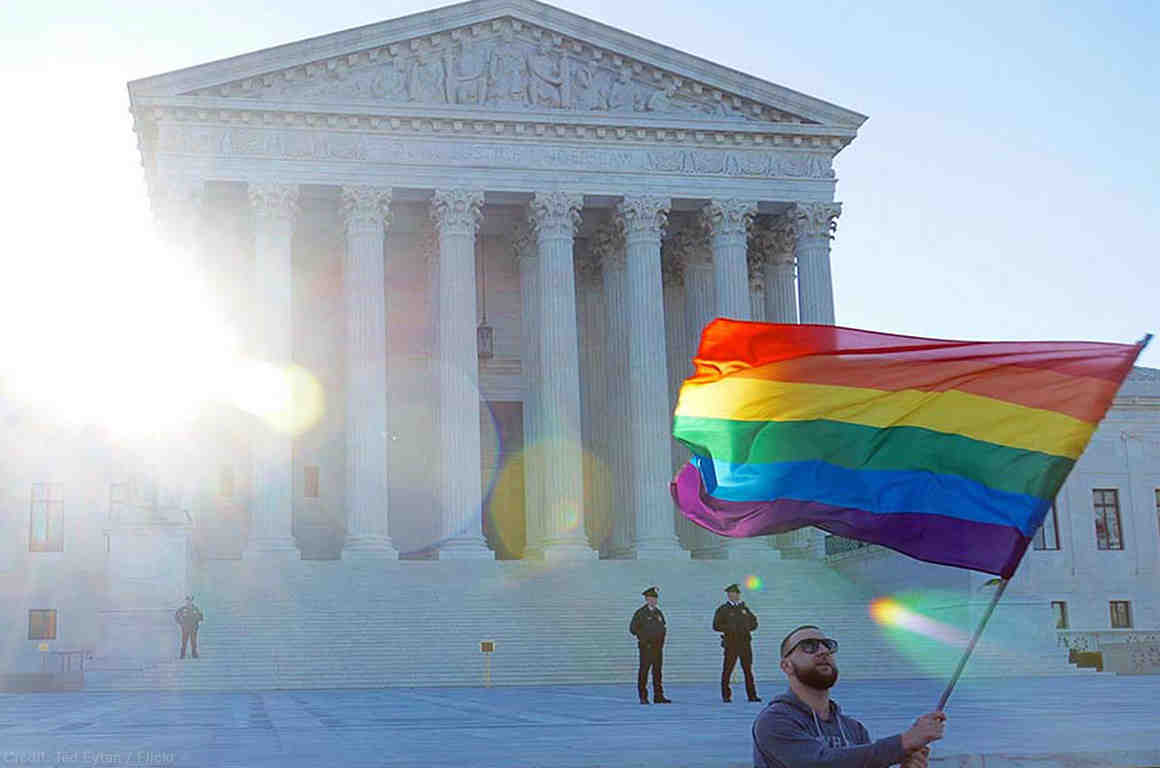For years, the LGBTQ+ community has fought for their rights in America. President Obama made same-sex marriages legal in 2015. This celebration was cut short, however, since there was another challenge to face: discrimination. The Equality Bill, which was passed by the House of Representatives on Thursday, February 25th, will protect LGBTQ+ individuals based on sexual orientation and gender identity. When this bill is signed by President Biden, it will be one of the most important civil rights acts signed for the LGBTQ+ community. This bill will mark an important milestone for young people in the community as they won’t have to live in fear of being treated differently in public because of who they are.
During former President Trump’s administration, many signed bills further harmed the LGBTQ+ community as it took away their individual rights, such as access to healthcare and their ability to serve in the military. President Trump’s controversial military ban that went into effect in 2019 prohibited “anyone with gender dysphoria who is taking hormones or has already undergone a gender transition will not be allowed to enlist. Further, any currently serving troops diagnosed with gender dysphoria after this date will have to serve in their sex as assigned at birth and will be barred from taking hormones or getting gender-affirming surgery.” This was further stripping away at their individual rights, that is to serve in the military and protect our country. Although some may say that transgender people serving in the military made up a small percentage of people, it doesn’t deny the fact that this was a threat to LGBTQ+ rights in America.
In addition to openly excluding transgender individuals from serving in the military, the HHS (Department of Health and Human Services) under President Trump’s administration finalized a rule that took away nondiscrimination protections for LGBTQ+ people. This rule was first proposed in 2019 and was issued just days before President Trump left office. This rule allowed “recipients of federal HHS grants to discriminate against LGBTQ+ people in the name of religious freedom.” Services such as healthcare, sexual health, addiction, adoption and fostering, and youth homelessness services were all affected. The obvious attack on LGBTQ+ nondiscrimination protections has affected millions in the community. Something had to change.
So, what exactly would the Equality Act do? If passed by the Senate, the bill would amend the Civil Rights Act of 1964. Any type of discrimination based on gender and sexual orientation would be illegal. The bill has been proposed and passed many times before by the House. However, these attempts were under past presidential administrations- On his campaign trail, President Biden said that LGBTQ+ rights and implementing this bill are some of his top legislative priorities.
The Equality Act would essentially provide nondiscrimination protections for those who identify themselves within the LGBTQ+ community. In comparison to the Civil Rights Act, which covered areas such as housing and employment, the Equality Act would expand upon that act to cover federally funded programs, public accommodations, and inalienable rights that all should be guaranteed. Public accommodations would include retail stores, stadiums, etc. However, this does not affect places of worship such and churches and synagogues.
According to the HRC (Human Rights Campaign), “Decades of civil rights history show that civil rights laws are effective in decreasing discrimination because they provide strong federal remedies targeted to specific vulnerable groups. By explicitly including sexual orientation and gender identity in these fundamental laws, LGBTQ people will finally be afforded the exact same protections as other covered characteristics under federal law.”
The final vote among the House for the Equality Act was 224-206, with overwhelming support from Democrats and three Republicans. Over 600 organizations have shown their strong support for passing this bill. The non-partisan Public Religion Research Institute (PRRI) reported that over 70% of people supported this type of bill.
Without protection from this bill, the LGBTQ+ community is vulnerable. If you were part of the LGBTQ+ community, you could be fired from your job. If you were a transgender child in school, you could be denied to use your preferred bathroom. Doctors would be allowed to refuse service to individuals because of their religious beliefs. This meant that discrimination laws that ‘protected’ young and even older individuals in the community were never really protected under these laws.
Although the Equality Act combats discrimination for people in the community, it would not protect individuals against the alarmingly high rates of violence towards LGBTQ+ individuals. The CDC’s National Intimate Partner and Sexual Violence Survey found that individuals in the community who were gay, lesbian, or bisexual were more likely to experience sexual assault and violence than straight people. They also found that within the community, bisexual women and transgender individuals experienced much higher rates of sexual violence than others, and most were experienced at such a young age. Of the 7,120 reported hate crimes in 2018, 19% or more than 1,300 of those cases were hate crimes directly towards LGBTQ+ individuals.
Even with strong support for the bill- mainly coming from Democrats- plenty of Republicans, both in the House and the Senate, disapprove of the bill, claiming it doesn’t comply with the first amendment of freedom of religion. Senator Mitt Romney (R-UT) reported to the Washington Blade that he will not vote to pass the bill, following up by saying how the act lacks “strong religious liberty protections.” Additionally, some conservatives oppose the legislation, claiming that Equality Act will have a “potential impact on girls sports.” Cisgender women could be “harmed” by allowing transgender women to play women’s sports.
In the end, the tireless work to ensure that LGBTQ+ individuals are guaranteed nondiscrimination protections is still in the making. The only thing to hope for now is that the community, in its entirety, has all the same rights and privileges that everyone else in America.
